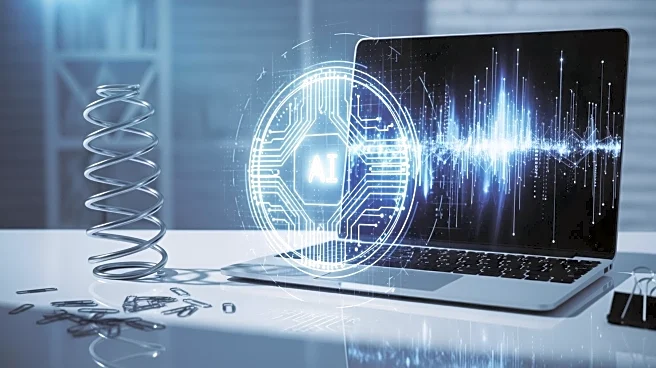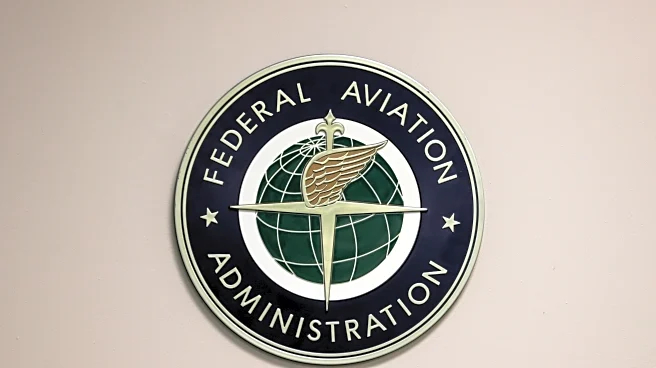What's Happening?
In the Bay Area, workforce consultant Michael Bernick has observed a resurgence in blue-collar jobs as artificial intelligence begins to impact the job market. While AI is replacing some white-collar positions, blue-collar jobs remain resilient due to their hands-on nature. Los Medanos College in Pittsburg is preparing students for the workforce by teaching trade skills using the latest technology. Jeff Andre, a teacher at the college, emphasizes the irreplaceable human element in operating machinery. Salesforce CEO Mark Benioff notes productivity gains from AI, affecting hiring decisions in engineering. Bernick points out that many college graduates are working in jobs not requiring a degree, highlighting the value of trade skills.
Why It's Important?
The shift towards blue-collar jobs reflects changing dynamics in the labor market, where AI is increasingly automating white-collar roles. This trend may lead to a reevaluation of educational priorities, with greater emphasis on trade schools and community colleges. As AI continues to evolve, individuals with practical skills may find more job security. The resurgence of blue-collar jobs challenges societal perceptions and underscores their importance in providing essential services. This development could influence public policy and educational strategies, promoting diverse career paths beyond traditional four-year degrees.
Beyond the Headlines
The resurgence of blue-collar jobs may lead to cultural shifts, as society recognizes the value of skilled trades. This could reduce stigma associated with non-degree careers and encourage more people to pursue vocational training. The trend may also impact economic policies, with potential investments in trade education and infrastructure to support these roles. As AI technology advances, the balance between automation and human labor will continue to shape the workforce landscape, prompting ongoing discussions about the future of work.











